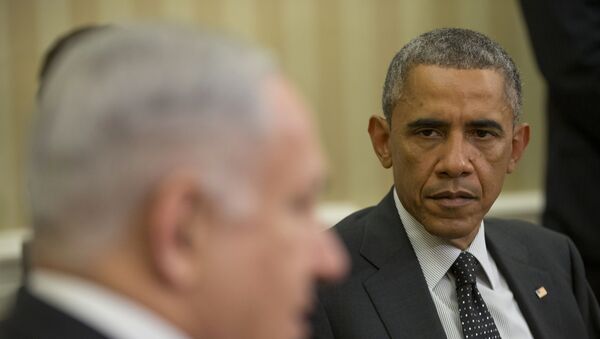"This memorandum of understanding is the single largest pledge of military assistance to any country in the United States’ history," Shannon said before signing the MOU document in tandem with Nagel at the State Department.
White House National Security Advisor Susan Rice said the additional funding in the MOU will allow Israel to update its aircraft fleet, including the acquisition of new F-35 and F-15 fighter jets, along with enhancing the country’s ground forces.
The security aid package, Rice added, will also strengthen Israeli missile defense systems like the Iron Dome, which is designed to destroy short-range rockets and artillery shells such as those fired from the Gaza Strip, while providing the United States with mutual benefits.
"Moreover, our Israeli friends will be able to buy more of the advanced capabilities produced by the United States, which will support American jobs," Rice reasoned during a speech right before the MOU was inked. "Like so many aspects of the US-Israeli relationship, this MOU is a win-win."
Obama said in a statement shortly after the ceremony that the MOU represents his own staunch commitment to Israeli security, adding that both he and Prime Minister Benjamin Netanyahu are confident the assistance will contribute to ensuring Israel remains secure in a "dangerous neighborhood."
The US president also warned, however, that Israel can only endure as a Jewish and democratic state through the realization of an "independent and viable Palestine" and underlined Washington’s resolve to pursuing a two-state solution.
The new US-Israeli MOU will be effective for fiscal years 2019 through 2028, according to the State Department. The current agreement, which ends at the end of 2018, totaled $3 billion annually before additional US Congress allocations.
The MOU, despite representing the largest bilateral security aid deal in US history, fell short of what Netanyahu had sought, which was $45 billion over ten years, and was criticized by some lawmakers for not being enough.
US Senator Lindsey Graham said he had proposed an increase of $300 million in military financing above the amount stipulated in the MOU due to threats Israel faces from Iran, Hezbollah, Hamas and Islamic radicals in the Sinai Desert. Graham also proposed an additional $100 million for missile defense on top of that designated in the final MOU.
The Republican Senator also disagreed with a provision in the MOU that bars Israel from using US defense funding to develop its own suppliers.
"Under our old agreement Israel was allowed to develop cutting-edge military technology and was required to share this technology with the United States," Graham stated. "I’m proud to say that many of these advancements helped protect the lives of American service members in uniform."
Others have warned that the US Missile Defense Agency (MDA) has been spending an increased portion of its limited budget to fund Israeli security. The Center for Strategic and International Studies concluded in a July report that US initiatives have a tendency to get cut as a kind of "bill-payer" for larger Israeli missile defense programs.
The result of MDA’s growing foreign assistance to Israel "puts US missile defense and Israeli missile defense in competition," for the same limited funds, the report noted.
The Obama administration has often been at odds with the state of Israel over a number of issues, despite the significant amount of military aid, especially with respect to the Iran nuclear agreement, which Tel Aviv has adamantly opposed.
In March 2015, Netanyahu addressed US Congress during which he thanked Obama for his support of Israel while at the same time criticized the Iran nuclear agreement because it would "not block Iran's path to the bomb."
The United States, for its part, has repeatedly condemned settlement activity by Israel which Washington believes undermines efforts to find a two-state solution.
On Tuesday, Russian Foreign Minister Sergei Lavrov said Moscow is ready to host long postponed talks between Israel and the Palestinians as soon as the respective leaders agree to a time and place.




